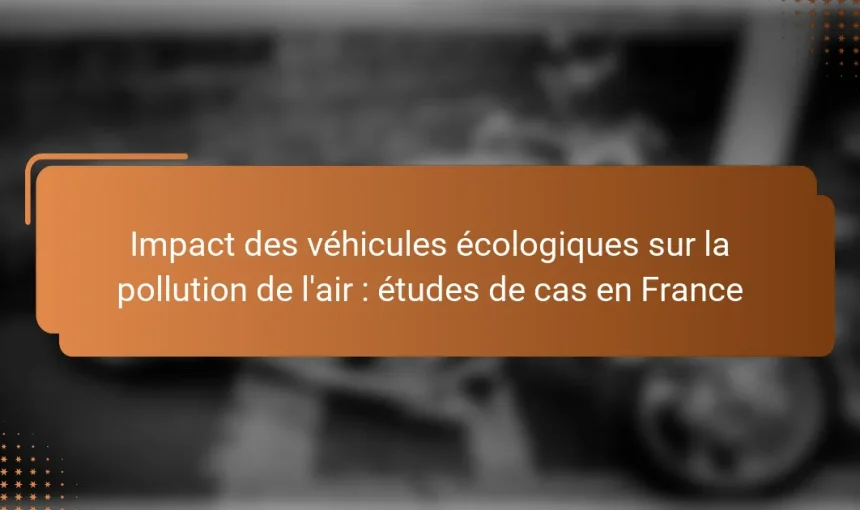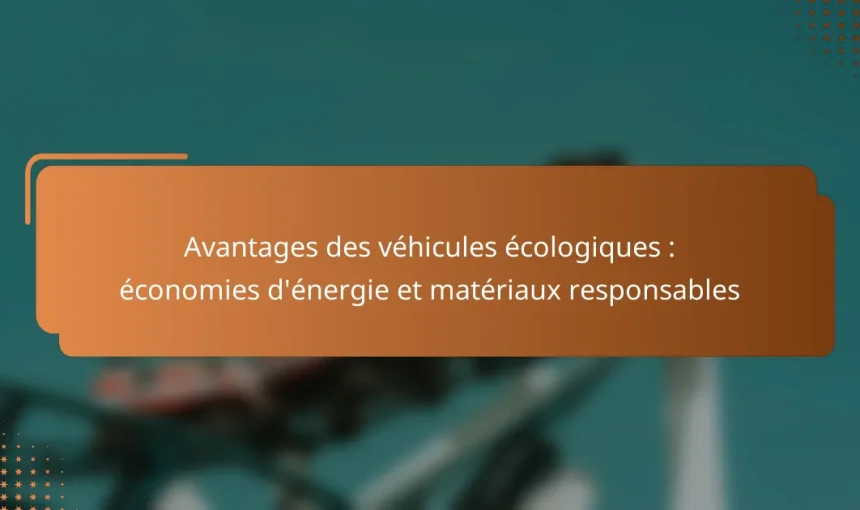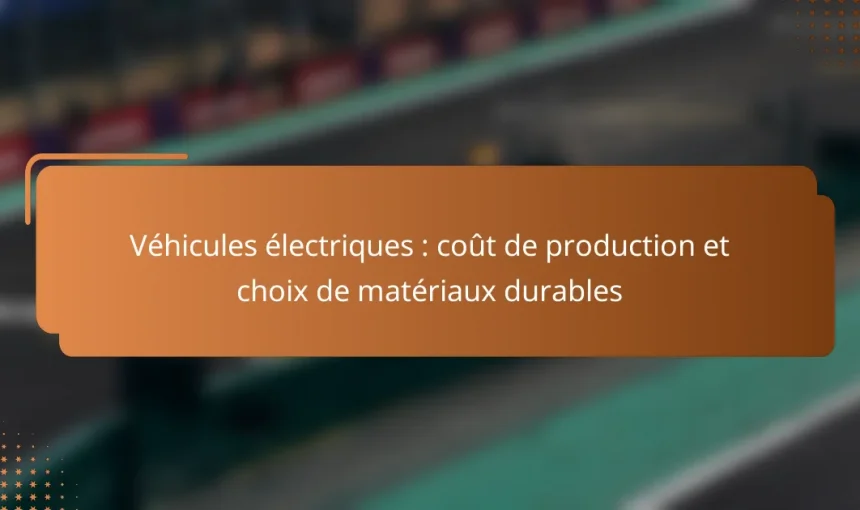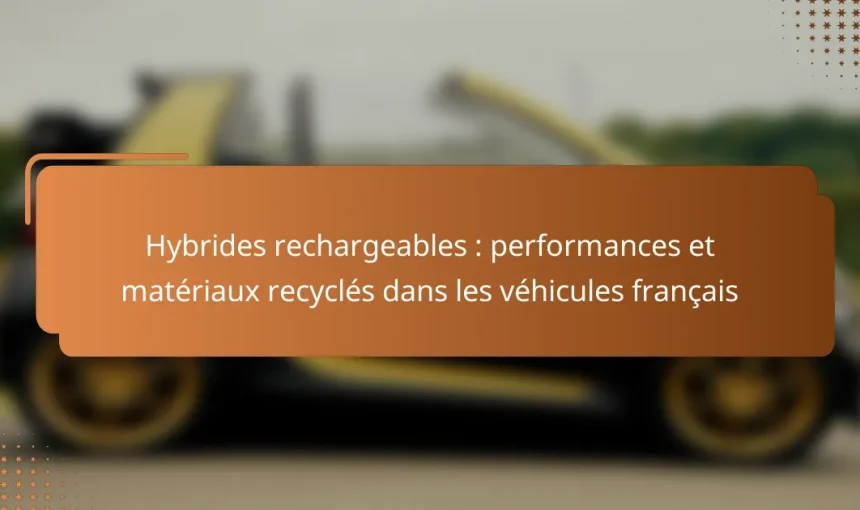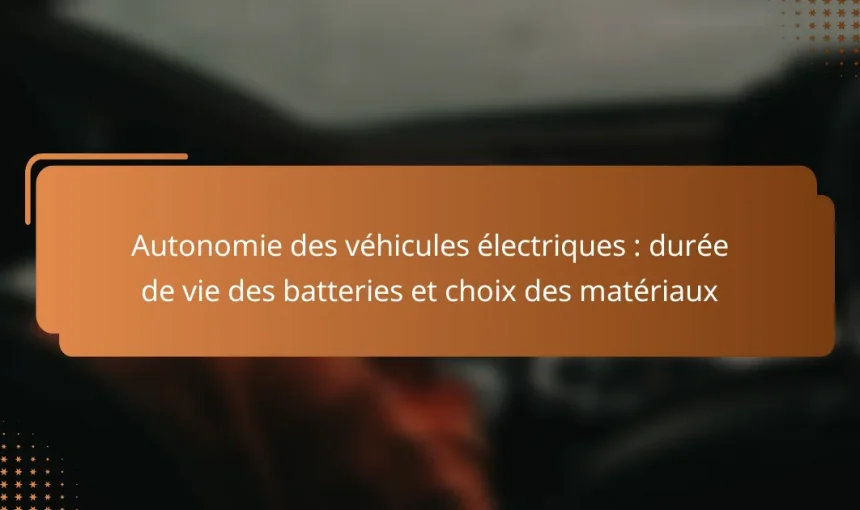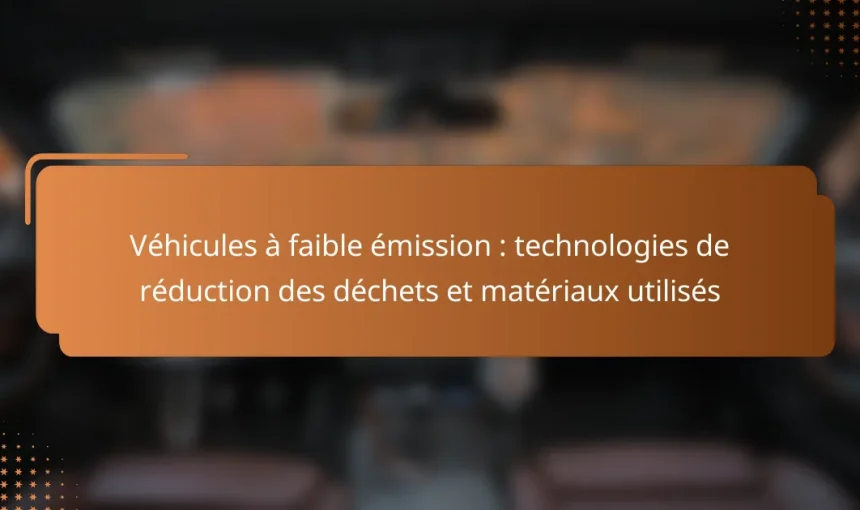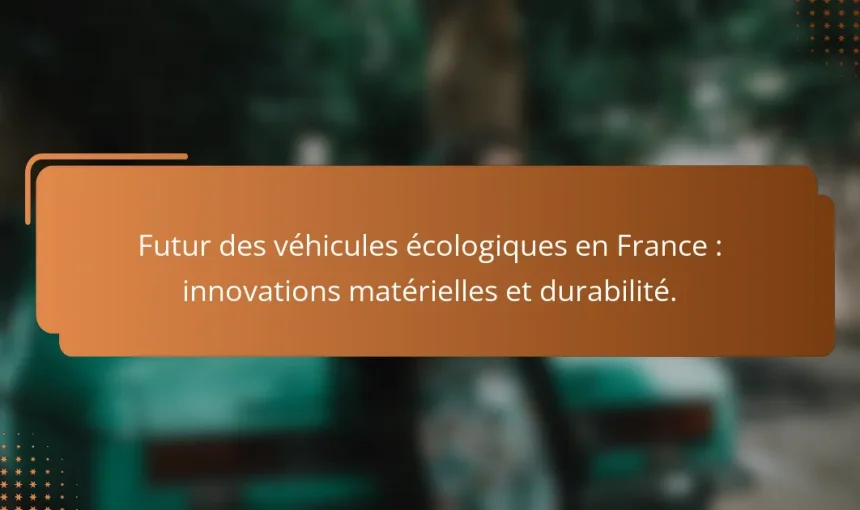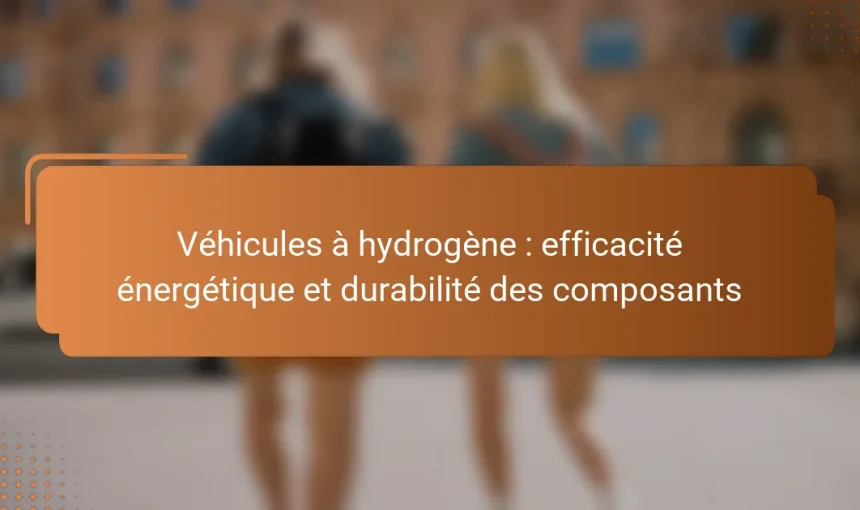Electric vehicles (EVs) significantly reduce greenhouse gas emissions, producing no carbon dioxide during operation. According to the European Environment Agency, EVs can lower CO2 emissions by up to 70% compared to gasoline cars, while also improving local air quality in urban areas. With greater energy efficiency, EVs consume less energy than traditional vehicles, leading to […]
French ecological vehicles primarily include electric, hybrid, and hydrogen-powered cars, with notable brands such as Renault, Peugeot, and Citroën leading the market. The Renault Zoé, for instance, is a popular electric vehicle with a range of 395 km based on the WLTP cycle. Peugeot offers the fully electric e-208, while Citroën’s ë-C4 emphasizes comfort and […]
Quels sont les véhicules écologiques français ? Les véhicules écologiques français incluent principalement les voitures électriques, hybrides et à hydrogène. Les marques comme Renault, Peugeot et Citroën proposent des modèles respectueux de l’environnement. Par exemple, la Renault Zoé est une voiture électrique populaire en France. Elle offre une autonomie de 395 km selon le cycle […]
Ecological vehicles are defined as transportation options that significantly reduce greenhouse gas emissions and utilize sustainable materials. This article explores the advantages of ecological vehicles, highlighting their impact on air quality and energy savings, which contribute to improved urban living conditions. It details how electric cars can emit up to 70% less CO2 compared to […]
Electric vehicles are automobiles powered by electric motors and batteries, playing a crucial role in reducing greenhouse gas emissions and air pollution, particularly in urban areas. They can lower CO2 emissions by 50 to 70% compared to combustion vehicles and offer significant savings on fuel and maintenance costs. The choice of materials used in electric […]
Hybride rechargeable vehicles combine an internal combustion engine with an electric motor, allowing for recharging via an electrical outlet and enabling a certain distance to be traveled in fully electric mode. These vehicles are designed to reduce CO2 emissions, with potential reductions of up to 50% compared to traditional vehicles, making them suitable for both […]
The article focuses on the autonomy of electric vehicles, defined as the maximum distance a vehicle can travel on a single battery charge. Factors influencing this autonomy include battery capacity, vehicle weight, and driving conditions, with advancements allowing some models to achieve up to 800 kilometers per charge as of 2021. Additionally, it discusses the […]
Hydrogen vehicles are automobiles that utilize hydrogen as an energy source, operating through a hydrogen fuel cell that generates electricity by reacting hydrogen with oxygen from the air. These vehicles are environmentally friendly, emitting primarily water vapor, and are gaining traction in the market, with brands like Toyota and Hyundai leading the way. Recent innovations […]
The article focuses on the future of ecological vehicles in France, highlighting technological innovations and sustainability efforts. It discusses the French government’s commitment to reducing greenhouse gas emissions, including the planned ban on gasoline and diesel vehicle sales by 2035. Key challenges such as insufficient charging infrastructure, high purchase costs, and limited social acceptance are […]
Hydrogen vehicles are defined as vehicles that utilize hydrogen as an energy source, employing a hydrogen fuel cell to convert hydrogen into electricity for propulsion. These vehicles primarily emit water vapor, significantly reducing greenhouse gas emissions compared to internal combustion engine vehicles, thus supporting the transition to sustainable transportation. The energy efficiency of hydrogen vehicles […]
